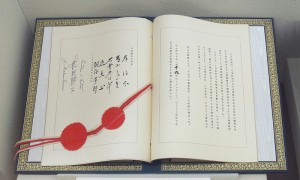A Response to the Bolton & Yoo Op-ed on the Arms Trade Treaty
A few months ago John Bolton and John Yoo published an op-ed in the Wall Street Journal criticizing the Obama Administration for promoting U.S. ratification of the Arms Trade Treaty, which the UN General Assembly adopted in April. The op-ed argues that the ATT would enable the Administration to circumvent Congress and require new domestic limits on small arms in violation of the Second and Tenth Amendments. I just read the piece and was surprised at how unpersuasive I found it to be, so I decided to write a quick response. I have already explained why the Second Amendment argument isn’t particularly compelling, but a few additional points deserve emphasis:
First, in arguing that Articles 5 and 10 of the treaty would require the United states to adopt new restrictions, Bolton and Yoo overlook existing federal law. They acknowledge that the United States “already has the world’s most serious export controls in place.” What they fail to mention is that current laws also impose permit and registration requirements on arms importers, bar some imports based on country of origin, mandate broker registration, and even authorize criminal penalties against violators. I see nothing in Articles 5 and 10, or in the op-ed, indicating that these laws would be insufficient. That being the case, it’s at least questionable that the United States would have to adopt new import restrictions after ratification. While some might perceive the sufficiency of existing U.S. law as an argument against ratification, that view ignores the positive diplomatic implications of U.S. participation—an arms treaty backed by the world’s largest arms exporter would enjoy much greater legitimacy.

